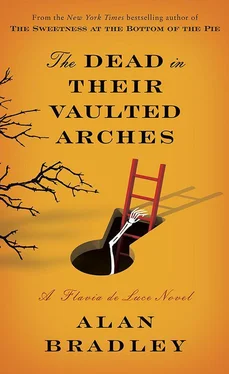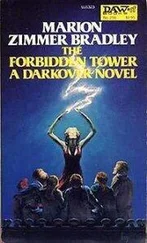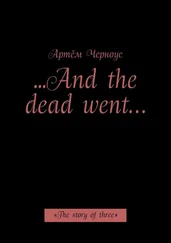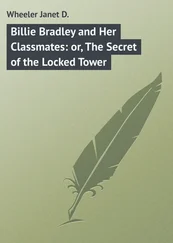“Is Singapore in Malay?”
“No! Malay is a language, you silly goose. Singapore is a geographical location.”
This discussion was not going at all as I had hoped. Time for another diversion.
“Undine,” I said. “What a peculiar name.”
Perhaps “peculiar” was a little harsh, but she had, after all, struck the first blow by calling me a silly goose.
“Not so peculiar as it might have been,” she replied. “My father wanted to call me Sepia, but my mother prevailed.”
That was the way she spoke: “prevailed.”
What a curious little creature she was!
At one moment, she was a baby bawling for more amusement, and the next, she was talking like some boring old stick from the Explorers Club.
Ageless , I thought. Yes, that was the word that best described Undine: ageless .
Still, I wasn’t quite sure whether to believe her about the Singapore saltwater crocodile. I’d check her up later.
“I’m sorry about your mother,” she said suddenly, out of the silence. “Ibu has spoken of her often.”
“In Malay ?” I asked, meaning to cut.
“In Malay and in English,” she said. “In Singapore, we spoke both languages interchangeably.”
Interchangeably ? Don’t make me hurl my gastric acids!
“Have I caused you great distress?” she asked.
“Distress?”
“Ibu said I was not to mention your mother’s name at Buckshaw. She said it would cause great distress.”
“ Ibu speaks often of my mother, you say?”
I was still being more than a trifle snotty, but Undine didn’t seem to notice.
“Yes, quite often,” she said. “She cared for her a great deal.”
I have to admit I was touched.
“She wept,” Undine said, “when they took your mother’s body from the train.”
Quite suddenly my mind was reeling.
“From the train?” I asked, disbelieving her. “You weren’t at the station.”
“Yes, we were,” Undine said. “Ibu said it was the least we could do. We were late. We parked off to one side, but we were still able to observe everything.”
“I’m suddenly tired, Undine,” I told her. “Find your own way upstairs. I’m going for a bit of a lie-down.”
I stretched out on my bed, facedown, unable to keep awake, unable to sleep, and guilt was the culprit.
How could I have sat so calmly in the kitchen watching a carefree shadow-show when all the while my mother was lying dead upstairs?
Dead and lost: frozen in a glacier for a decade until some moronic mountaineer, posing for a snapshot, had stepped backwards into a crevasse, where a rescue party eventually found his—and her—icy remains.
How did I feel? Guilty as sin!
Why wasn’t I blubbering and shrieking and ripping out my hair? Why wasn’t I prowling the battlements of Buckshaw, howling into the wind?
Even Cousin Lena had been able to weep at the station. Why then had I stood there on the platform like a piece of rotted timber, more attentive to the death of a stranger than to that of my own mother?
Why had I needed to be reprimanded by a voice from the swamps of my mind?
How could my grief have failed me so miserably?
Perhaps Feely and Daffy had been right all along: Perhaps I really was a changeling. Perhaps Harriet really had plucked me from an orphanage—which would mean, of course, that I had no more real physical connection with her than does a monkey with the moon.
Never in my life had I wanted more desperately to be a de Luce, yet never had I felt less as if I actually were one. My family and I seemed to stand at opposite ends of the universe. I was as much a mystery to them as they were to me, and yet, in spite of it, we needed one another.
I rolled over, faceup, and stared at the ceiling. The great loose bags of water-damaged paper that hung like moldy barrage balloons above my head made me feel as if I were under attack from the very house itself.
I covered my head with a pillow. But it was no use.
In just a few hours, the people of the village would begin arriving at Buckshaw for Harriet’s lying-in-state. Dogger would usher them in small groups up the west staircase to her boudoir, where they would stand gazing at their own reflections in the awful polish of that hideous coffin, whose contents were too horrible to be imagined.
I leapt from my bed and, picking up the ciné projector, carried it into my laboratory darkroom.
Again I threaded the film into the machine and switched it on. The picture was smaller but brighter than it had been in my bedroom fireplace, and, oddly enough, I was able to pick out more detail.
Here is Harriet, scrambling once more from the cockpit of Blithe Spirit with yours truly still invisible but present nevertheless beneath her flying togs. Feely and Daffy wave and shield their eyes.
Was it from the sun, as I had supposed?
Or had Harriet, in real life, been too radiant to look at?
Whatever the case, by developing this forgotten film, I had, with the magic of chemistry, restored my mother to life.
Deep inside me, something awoke, rolled over—and then went back to sleep.
Now Father strolls towards the camera, unaware that he is trapped in another world: the world of the past.
Daffy and Feely dabble at the edge of the ornamental lake, unaware that they are being filmed. The camera turns away, moving towards the blanket upon which Father and Harriet are picnicking.
But wait!
What was that shadow on the grass? I hadn’t spotted it before.
I stopped the projector and threw it into reverse.
Yes! I was right—there was a dark blot on the grass: the shadow of the camera operator, whoever that may have been.
I let the film run on a bit: As Father turns away to remove something from the hamper, Harriet turns to the camera and mouths those words again.
Along with her, I speak them aloud, attempting to match my lips with hers, getting the feel of her words in my own mouth:
“Pheasant sandwiches,” she says on the flickering image.
“Pheasant sandwiches,” I say.
Again I back up the film for another glimpse of that fleeting shadow on the grass. To whom had Harriet mouthed those mysterious words?
I watched it all again wondering if there was a way to freeze the picture.
“Pheasant—” Harriet said, and there was the most awful clatter and grinding.
The projector had jammed!
On the wall, the image had frozen mid-word. Before my very eyes, Harriet’s face began to turn brown—to darken—to shrivel—to bubble—
The film had caught fire! A little column of dark, acrid smoke arose from somewhere inside the projector.
If the film was cellulose nitrate, as I knew some films to be, I was in trouble.
Even if it didn’t explode—as was quite likely—the burning stuff could still fill the room almost instantly with a noxious mixture of hydrogen, carbon monoxide, carbon dioxide, methane, and various unpleasant forms of the nitrogen oxides, to say nothing of cyanide.
This little darkroom would, in an instant, become a perfect chamber of death. Buckshaw itself might then, in minutes, be reduced to ashes.
I tore a laboratory apron from its hook on the wall and flung it over the machine.
Cellulose nitrate doesn’t require outside oxygen to burn: It contains its own.
Nothing—not even fire extinguishers or water—can extinguish a cellulose nitrate blaze.
Usually, when it comes to chemicals, I have my wits about me, but I must confess that in this case, I panicked.
I dashed out of the darkroom, slammed the door behind me, and threw my back against it to keep it shut. A cloud of smoke escaped with me.
I was standing like that—like a creature that had just dragged itself up out of the pit—when a voice from the smoke asked “Close call?”
Читать дальше












